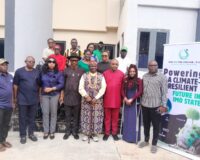Japan has pledged $108 million to bolster Nigeria’s emergency food security and agricultural development. Yuka Furutani, Attaché for Development Cooperation and ECOWAS at the Japanese Embassy in Nigeria, announced this at a workshop for digital extension service providers held in Abuja on Wednesday.
The workshop, organized by the African Forum for Agricultural Advisory Services (AFAAS) in partnership with Sasakawa Africa Association (SAA), AGRA, Sahel Consulting, and Africa Practice, launched an initiative to develop a digital extension delivery system for Nigeria’s public-private agricultural sector. Funded by the Bill and Melinda Gates Foundation, the initiative aims to identify digital solutions tailored to farmers in Oyo, Gombe, and Kaduna states.
According to Furutani, Japan’s commitment to food security in Africa is unwavering. She noted that a $108 million emergency food security loan agreement was signed between Japan and Nigeria in April during a Tokyo conference on agricultural development. Additionally, a $4.2 million grant was provided to enhance Nigeria’s rice seed production system. “Agriculture extension services are crucial for achieving sustainable food production and addressing food crises,” Furutani added.
One example of Japan’s efforts is its partnership with Sasakawa Africa Association, which utilizes the Acropronto digital agriculture service tool. Developed by a Japanese company, Acropronto combines Japan’s expertise in agriculture and advanced technology to enhance farming practices in Nigeria.
Godwin Atser, Country Director for SAA Nigeria, emphasized the importance of digital tools in transforming agriculture. He explained that the initiative seeks to promote gender equality, improve climate resilience, and increase productivity across key value chains such as maize, cowpea, cassava, soybean, and livestock. “Engaging farmers with the right digital tools will significantly boost productivity and help reduce poverty in rural areas,” Atser said.
Deola-Tayo Lordbanjou, Director of the Federal Department of Agricultural Extension Services, highlighted the challenges facing agricultural extension services in Nigeria. He noted that the system has become less effective since the 1980s, with fewer service providers available today. Lordbanjou stressed the importance of advisory services in guiding farmers on best practices for planting, harvesting, and disease management to improve yields and sustainability.





